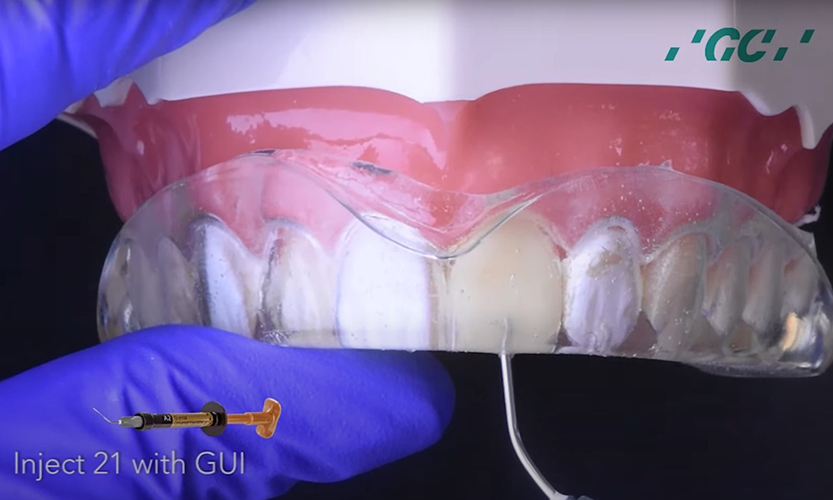As a Mississauga Dental office seeing many pediatric dentistry patients, we can say that the ages of 5 to 8 are lively times hallmarked by ever-changing smiles due to the baby teeth leaving and the new teeth erupting.
You will notice the lower front baby teeth become loose and fall out. At the same time, the new permanent first molars or 6 year molars are coming behind all the teeth in the back. You will notice your child’s look transforms from a babyface to that of a child as the development of the top part of the face is near completion.
Oral health during this period is critical as the foundation of your permanent teeth is laid down. Dr. Hawryluk Jr. wants to work with you and your child to ensure this is the start of lifelong dental health. Aiding in your child’s oral health is the excellent dental screening program offered by the nearby elementary schools such as Mineola and Kenollie Elementary Public Schools.
If you would like more information about dental screenings at schools, please visit this link:
During this age range, St. Lawrence Dentistry wants to make your child at ease in the dental office and make routine procedures like dental exams and polishing a pleasant experience. The Canadian Academy of Pediatric Dentistry suggests fluoride treatment at each 6-month recall exam and consideration for x-rays. If you wish to try and avoid dental x-rays at your child’s dental visit, please talk to Dr. Hawryluk, and he can make modifications if needed or explain any rationale behind treatment suggestions. Factors like brushing frequency and diet can affect the recommended frequency of dental x-rays.
Some children are more anxious than others at the dental office. We will work with you and your child to try and allay any perceived fears. Dr. Hawryluk Jr. can get most dental procedures completed even if your child has some moderate anxiety. We have treated thousands of pediatric dental patients, so we have the experience needed to find ways to calm your child.
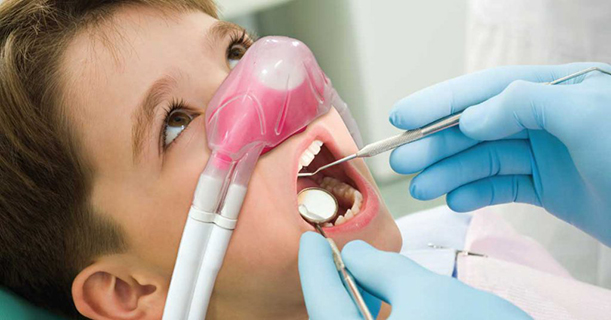
In some cases, however, a child still has anxiety despite both parents and Dr. Hawryluk’s efforts to make them understand they are in a safe environment and are trying to help them. Sometimes talking about an unrelated subject with the child, such as their favorite color, can distract their attention until they calm down. Sometimes having parents in the treatment room is a great help. In other cases, the child acts out more if the parent is there. As you know, not every child is alike in terms of their psychology, and Dr. Hawryluk will figure out what approach will work best for you and your child. If the staff at St. Lawrence Dentistry are unable to calm your child’s uneasiness about dentistry, Dr. Hawryluk may recommend using nitrous oxide or laughing gas. It is a very safe sedation method that can give the pediatric dental patient a relaxed floating feeling and help get the dental work done comfortably. In other cases, if there are multiple dental procedures to be done, your child can be fully asleep. St. Lawrence Dentistry is certified by the Royal College of Dental Surgeons to provide dental work asleep for children and has Board Certified Medical Anesthesiologists providing this. Please talk to Dr. Hawryluk about what type of sedation is right for your child’s pediatric dental care. It is important to make sure the child has an enjoyable visit because dental checkups happen regularly, and we, of course, do not want this to be a source of apprehension for them.
To learn more about ‘laughing gas’ sedation, please visit us here:
To learn more about dental work asleep, please visit us here:
Dentistry Asleep (Sedation Dentistry)
Between the ages of 5 and 8, children will often attempt to brush their teeth on their own. Many children will show an interest in trying as they want to emulate things their parents do. However, they will still need close supervision and coaching, especially on reaching the newly erupted (or about to erupt) first permanent molar teeth effectively. You may want to give them a chance to try on their own first and then finish the brushing. These teeth are of paramount importance to keep clean as they are prone to cavities on the top or fissure part of the teeth if dental plaque is persistently present.
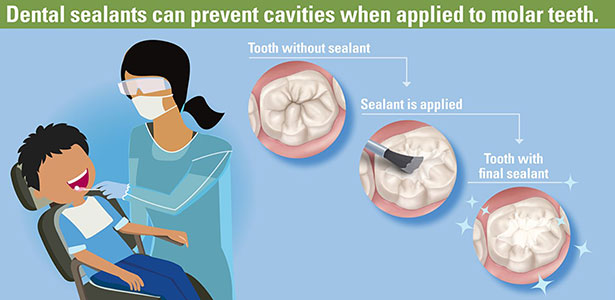
St. Lawrence Dentistry often recommends pit and fissure sealants on the permanent first molars when they erupt. These are thin coats of resin applied to the center of teeth, which are most vulnerable to dental decay. The dental resin prevents dental plaque from sitting on the tooth and can significantly reduce dental decay incidence. Sealants, along with proper brushing and flossing, can be a massive step in the appropriate development of a cavity-free dentition. If you would like to learn more about dental sealants, please talk to Dr. Hawryluk. Dental flossing is an excellent habit for your child to get into, and we often introduce this at our clinic when a child is at the age of 4. Flossing will remove micro particles away from your child’s teeth and reduce the incidence of cavities in between teeth (interproximal decay) and also keep gum inflammation down. At around age eight, many children will have the ability to try and floss by themselves. Just like brushing, it is great if parents can supervise and coach them in their efforts. If they get in the routine of doing it at this age, it will, in many instances, carry over into adulthood and lay the foundation of lifelong oral health. Floss holders are tools that can make the floss more comfortable to use. Please talk to one of our friendly hygienists, and they can provide samples for your child to try.
In the course of early childhood, the permanent tooth inaugurates its growth just below the baby teeth. They start as just little buds and gradually take the form of a tooth. They will eventually push the primary teeth over the top and begin to erode it from the bottom up. The age at which the baby teeth fall out is usually from 6 to 7. Sometimes it can be as early as four and delayed until eight years. Generally speaking, girls tend to lose their primary teeth slightly earlier than boys.

Interestingly, baby teeth fall out in the order in which they came in. The lower front incisors are the first to exfoliate, and then the upper incisors are next. The period from the initial loosening of the primary tooth until it falls out usually lasts a few months. Typically a baby tooth will not start to loosen until the underlying permanent tooth starts to push. The loosening of the baby tooth and the permanent teeth’ eruption can take as long as three and a half years. The permanent teeth usually replace all twenty of the primary teeth by age 12 or 13. A child usually has 28 permanent teeth by age 13, and 4 wisdom teeth start to break through by age 18.
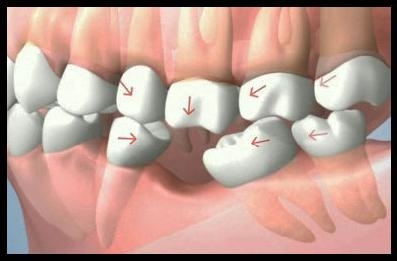
In instances of accidents or dental decay, sometimes Dr. Hawryluk has to remove a primary tooth before the permanent tooth is ready to erupt. If this happens sometimes, the adjacent teeth can drift and block the space for a new adult tooth trying to come in- this is especially true before the age of 4. Dr. Hawryluk may recommend a space maintainer appliance that will hold the space and prevent any drifting of teeth, thus allowing the new teeth to come in ideally.
Many parents come to St. Lawrence Dentistry and are concerned that they hear their child grinding their teeth. When children grind their teeth at night, it can be loud, but unlike adult teeth grinders, grinding at night is healthy for young children as long as it is not wearing down the permanent teeth. One benefit of a child grinding their pediatric teeth is that it compresses the baby teeth’ roots over the developing adult teeth-which enhances the natural exfoliation process in the tooth roots of the baby teeth, leading to their shedding. Grinding also helps the adult teeth erupt into the most stable positions in the mouth. Nighttime grinding in children usually does not require any intervention, and most children will outgrow these phenomena. Generally, grinding reduces around age 6-8, and children and ceases all together by age 12.
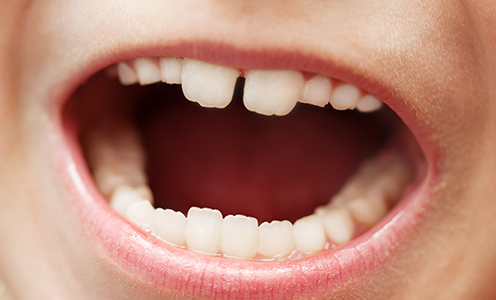
In addition to the evolving dentition, facial cartilage and bones are maturing during this period. Grown is essential since the mouth needs to make room for 32 permanent teeth in place of the 20 baby teeth. During this period, the jaw bones (maxilla and mandible) grow faster than the rest of the face, eventually taking up one third the size of the face. Sometimes the jaw does not mature enough for all of these teeth, and consequently, teeth crowding or impaction of the teeth can result. An orthodontist can help with your child’s case, and Dr. Hawryluk can refer you to some excellent orthodontists we have in the Mississauga area. Your child’s transitional smile may be a little unrefined for a while, but it makes some great photos to look back on years later. You can expect your child’s brand new teeth usually to have ridges on the edges at first. These are call mamelons and are traditionally fade away by chewing forces if the upper and lower teeth line up. Do not worry if the new permanent teeth seem slightly less white than the teeth they are replacing- this is normal, and as more teeth come in, this contrast will not be so discernible.
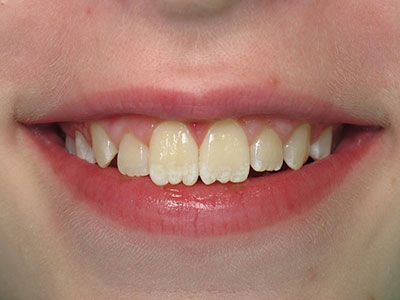
Some adult teeth will grow in on an angle or overlap. Some of these instances naturally correct themselves, and the others can be fixed in later childhood by Dr. Hawryluk. A history of thumb sucking, tongue thrusting, pacifier use, or prolonged bottle use can create a substantial open bite to the front teeth. If this is still happening when the permanent incisors have erupted, Dr. Hawryluk may suggest fabricating a habit breaking appliance- this will prevent your child from sucking his thumb and allow for the dental arches’ healthier growth to begin. If a child is earlier than average in losing their primary teeth, this may lead to crowded teeth as the jaw does not have enough time to expand to make room for the teeth. Crooked teeth and jaw size can also have a genetic component, so your dental history may reflect what your child goes through. Sometimes a crowded tooth may need to be removed to facilitate an ideal advancement of a permanent tooth. Dr. Hawryluk will assess your child’s situation and discuss all options with the parents or guardians.
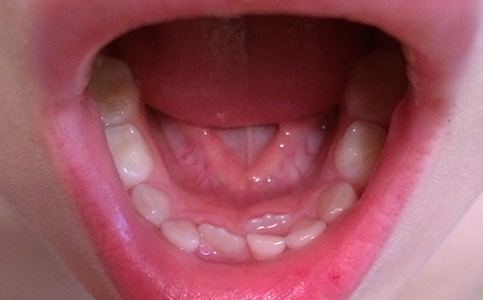
One common occurrence in the transition from the primary dentition to the permanent one is a condition known as shark teeth or ectopic eruption. In this situation, the permanent tooth has grown beside the primary tooth instead of pushing it out, creating two rows of teeth, similar to a shark’s double row of teeth. Although most prevalent around age 6, ‘shark teeth’ can materialize when a child commences losing teeth to around 12 years old. This condition usually resolves as more and more permanent teeth arrive and push on the baby teeth. If the ‘shark teeth’ persist, Dr. Hawryluk may advise removing some of the primary teeth to make room.
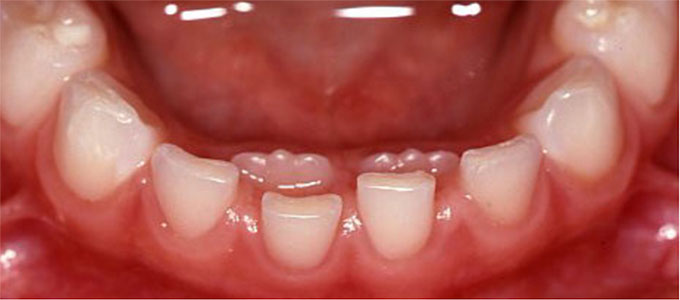
The right oral health routine and proper pediatric dental care can make a tremendous positive impact on your child and set the stage for great teeth into adulthood. If you live in the Mississauga or surrounding area and have questions about pediatric dental care or need a dentist for you or your child, please give us a call.
For more information about pediatric dental treatment at our office, please visit us here:
- Sleep Dentistry: Enhancing Comfort and Care During Dental Procedures - July 11, 2024
- The Revolutionary Injection Molding Technique for Composite Veneers - June 27, 2024
- Why Are Third Molars Called “Wisdom Teeth”? - June 19, 2024






